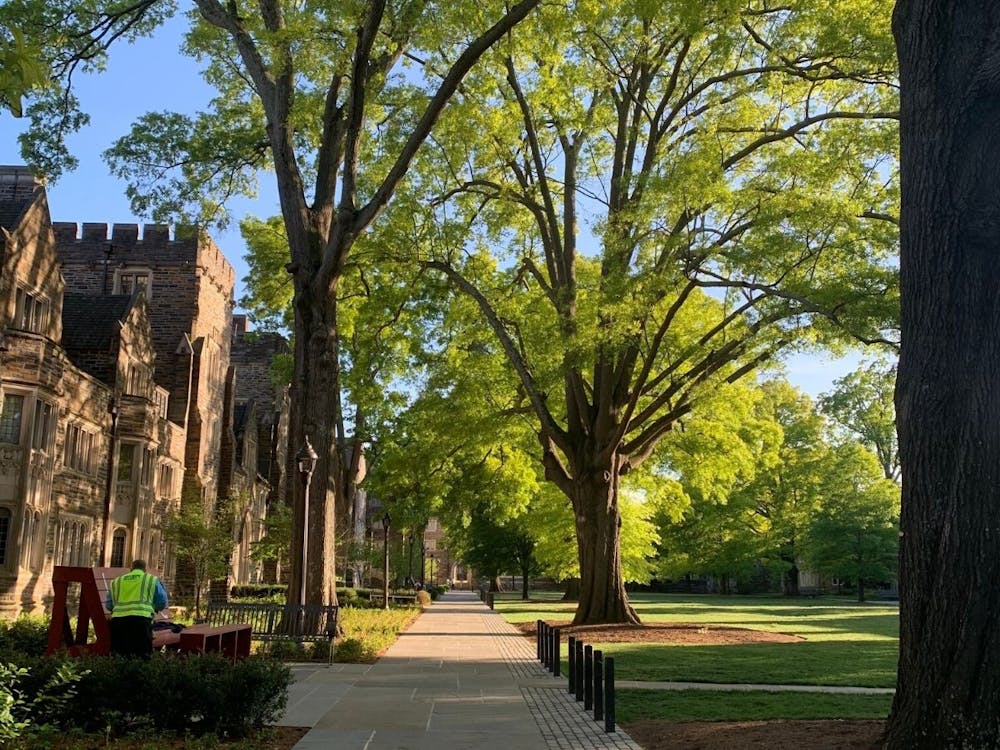Duke announced changes to its COVID-19 protocols for summer activities on Wednesday in an email to the Duke community.
All students enrolled in summer session are required to be vaccinated or have an approved medical or religious exemption, and they must have a negative PCR test 72 hours prior to their arrival on campus. Students that test positive during summer session must isolate themselves for five days; if the student lives on campus, they will isolate in a single room in their residence hall.
Although surveillance testing remained available in some locations after Duke chose to end required testing for asymptomatic vaccinated individuals, that testing will end May 1. Unvaccinated individuals will also no longer be required to participate in surveillance testing and symptom monitoring on this date.
“Unvaccinated individuals remain at higher risk for severe illness related to COVID and should consider getting vaccinated to protect themselves and others at risk for severe illness,” the email reads.
Cavanaugh wrote in an email to The Chronicle Wednesday afternoon that it is currently too early to tell whether the pause on surveillance testing will continue into fall 2022.
“Much will depend upon how the virus behaves over the next few months,” Cavanaugh wrote.
Symptomatic testing will remain available through Student Health and Employee Occupational Health and Wellness over the summer.
For youth programs, participants must also show negative COVID-19 test results before arriving and anyone that tests positive while on campus will be isolated until a caregiver comes to pick them up. Residential camp participants must be vaccinated or have an exemption, while day camp participants are “encouraged” to be vaccinated. Residential camps must have a designated “COVID Coordinator” on staff to verify vaccination status and negative test results.
Student Health will also provide testing to symptomatic camp participants if the program has a contract to permit this; otherwise, participants will have to get tested at an outside facility, such as a pharmacy or urgent care. Cavanaugh wrote to The Chronicle that outside tests would be at the expense of the participants and/or their parents.
“We are so proud of the efforts each of you have made in helping navigate the worst of the pandemic. While we must be prepared to ramp up our efforts again if a new variant or outbreak emerges, we hope to continue easing back into more normal routines this summer,” the email to the Duke community reads.
The email was sent to faculty, staff and students by the co-leaders of the COVID-19 Vaccination Planning Work Group: Vice President for Administration Kyle Cavanaugh; Russell Thompson, interim vice president of operations; Carol Epling, assistant professor in family medicine and community health; Gail Shulby, Duke Health chief of staff; and Cameron Wolfe, associate professor of medicine and infectious diseases.
Get The Chronicle straight to your inbox
Signup for our weekly newsletter. Cancel at any time.

Nadia Bey, Trinity '23, was managing editor for The Chronicle's 117th volume and digital strategy director for Volume 118.

